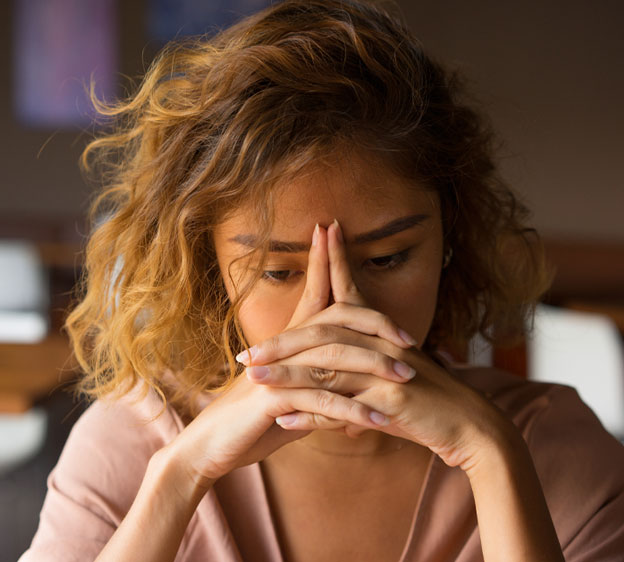
It's normal to feel anxiety when you’re dealing with something stressful in your life, but it can elevate to a clinical disorder if worry and fear become so intense and excessive that they interfere with your daily activities and keep you from doing things that bring you pleasure.
Pressures of the Pandemic
“As our lives have become more stressful, we have seen anxiety increase in the last decade, spiking in recent months with the outbreak of COVID-19,” says Dr. Yvette-Marie Pellegrino, a board-certified family medicine provider at Beaufort Memorial Lady's Island Internal Medicine. “Patients who have always been anxious now feel overwhelmed. Anxiety is ruling their lives.”
It’s not yet known what role genetic factors play in anxiety disorders. Some anxiety disorders run strongly in families. Character traits may also put individuals at greater risk of having anxiety.
“An anxious parent is more likely to make their children anxious,” Dr. Pellegrino says. “Kids will pick up on the anxiety. If your child starts showing signs of anxiety, be supportive and talk to their physician about available treatments.”
Even if you don’t have a family history of anxiety, environmental factors can cause you to feel anxious from time to time.
“It’s tied to stress for the most part,” Dr. Pellegrino says.
Guidance for Your Anxiety
If you’re among the Americans currently suffering from anxiety, there are tools you can employ to alleviate it. Among them is guided meditation.
“Anyone can do it, it can be done any time of day, and it helps with both anxiety and depression,” Dr. Pellegrino says. “Meditation apps like Headspace provide a wide range of guided meditations for everything from improving your health to sleeping better.”
Mindfulness-based stress reduction (MBSR) also has been shown to reduce anxiety. Originally designed for stress management, MBSR combines mindfulness – a healing approach practiced by Buddhist monks for centuries—and yoga. Clinical studies have documented both physical and mental health benefits from the practice.
In the 1970s, Jon Kabat-Zinn developed an eight-week MBSR program to treat patients struggling with the daily pressures of life. The basis of the therapy is nonjudgmental awareness of what you are experiencing in the moment.
“The idea is to pay attention to your thoughts without judgement,” Dr. Pellegrino says. “Focus on the here and now.”
Read More: 10 Healthy Habits to Start Right Now
A study published in the journal Psychiatry Research found that eight weeks of meditation can significantly alter the stress response in people with generalized anxiety disorder. Meditation also was linked to significantly reduced anxiety in a study conducted by Johns Hopkins. Other research has linked meditation to reduced levels of stress hormones and inflammatory proteins.
“There are a number of medications available to treat anxiety in combination with therapy,” Dr. Pellegrino says. “If you are suffering from anxiety, I recommend speaking with a psychiatrist, psychologist, therapist or religious counselor.”
A Beaufort Memorial primary care provider can help if you are experiencing anxiety or depression, whether related to the coronavirus or other life stress. Find a provider accepting new patients.


